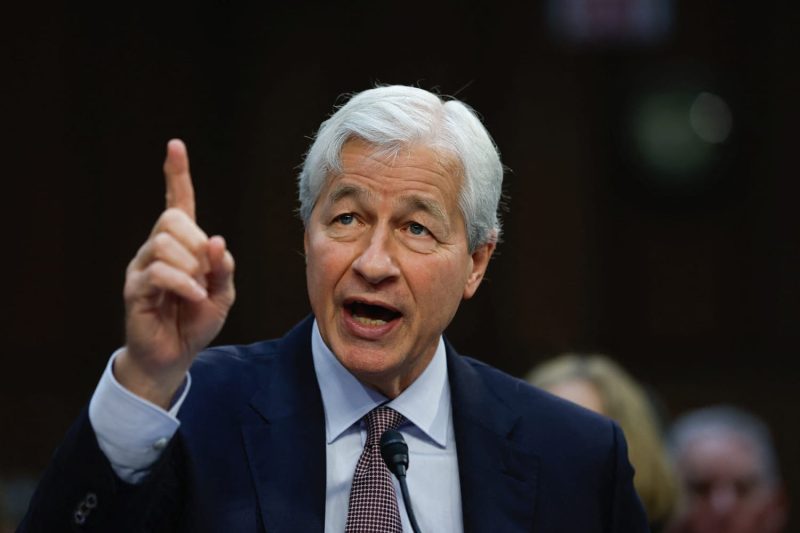
JPMorgan Chase: Ready for Legal Battle with U.S. Government over Zelle Fraud!
Within the intricate machinations of the American financial sector, JPMorgan Chase has emerged as a notable titan, matching its influence and prowess with a keen willingness to defend its interests. This guiding principle is once again coming to the fore as reports suggest that the banking stalwart is gearing up to potentially sue the U.S. government over Zelle fraud issues, a situation that has left many onlookers puzzled and intrigued.
A noticeable surge in fraudulent activities linked to Zelle, a digital payment platform effectively marketed as the banking industry’s answer to Venmo and PayPal, has set off alarm bells within JPMorgan Chase. As one of the leading participants in the Zelle network, the bank has been contending with much of the fallout from this unfortunate trend. The scams typically involve fraudsters manipulating the platform to illicitly drain consumers’ bank accounts.
JPMorgan Chase’s anticipated legal tilt against the federal government stems from a profound disagreement over who should shoulder the responsibility for these scams that have, arguably, tarnished Zelle’s reputation and caused substantial financial loss to the victims. The bank firmly believes that the government’s regulations requiring banks to reimburse customers for unauthorized transactions should not apply in these circumstances. The bank’s argument lies in the fact that, in many cases, the fraudulent acts are consummated because consumers unwittingly provide fraudsters with access to their accounts or validate illegitimate transactions.
Furthermore, the bank feels aggrieved by what it perceives as insufficient action from Zelle, which is managed by Early Warning Services, a consortium in which JPMorgan Chase is a participant. The banking group feels that despite being heavily invested in the consortium, they have been left shouldering far more than their fair share of the emerging problems, and thus, considers this another reason for the potential legal action.
In contrast, the U.S. government, through its regulators, insists that the longstanding consumer protection provisions mandating reimbursements should not be modified. From the regulators’ perspective, the onus is on the banking institutions and the digital payment platform providers to implement robust security measures that protect consumers from fraudsters. The government’s stance is essentially to ensure consumer trust in financial transaction platforms by ensuring that when wrongdoing occurs, the affected customer will be protected against financial loss.
This predicament highlights the complex dynamic of responsibilities among players in the digital payments arena. Cybersecurity measures and discerning actions from consumers are undoubtedly vital in minimizing fraud. Equally, so are regulations holding entities accountable. The solution may
